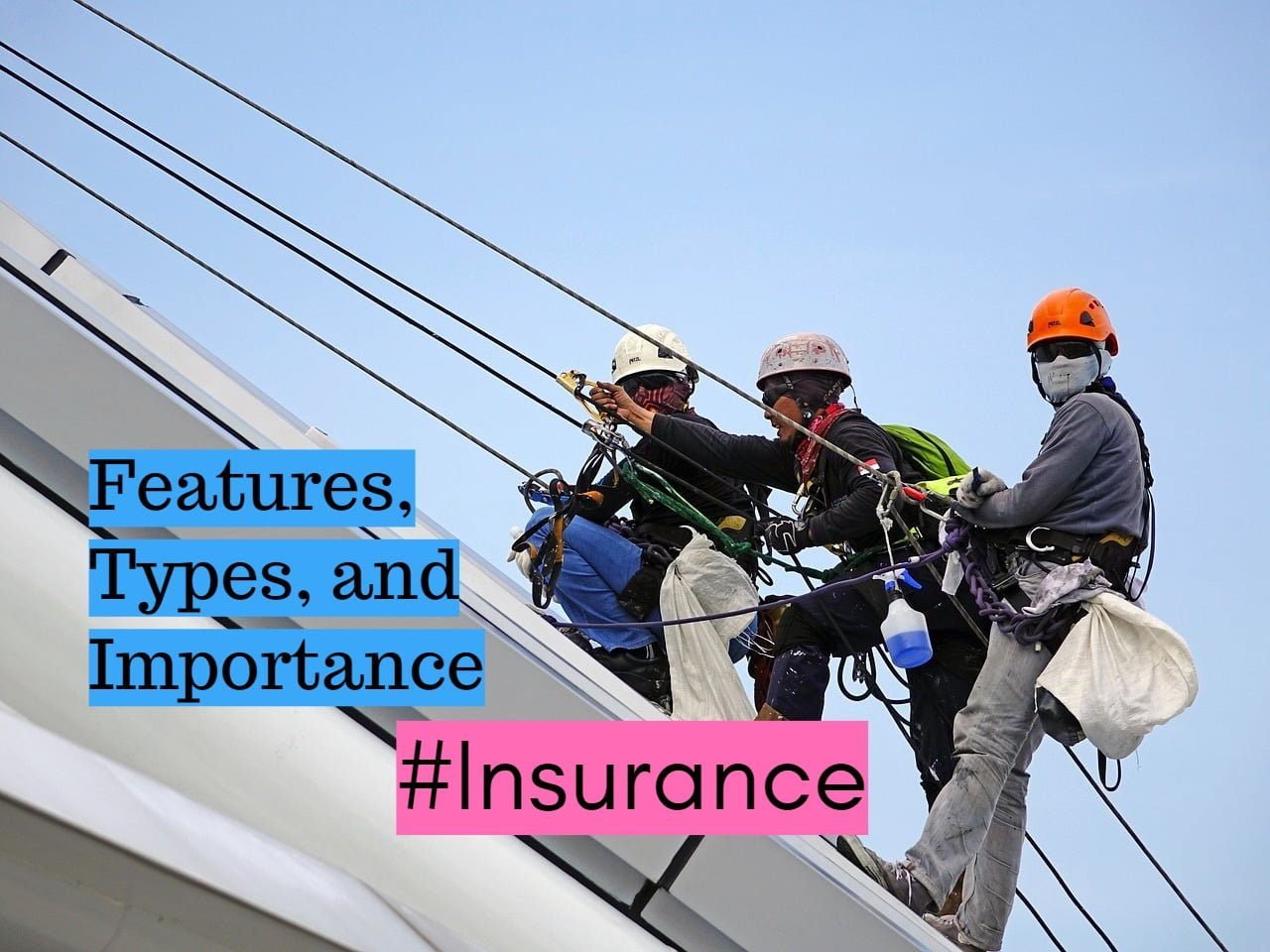Learn why obtaining auto insurance quote is crucial. Compare pricing and coverage options to find the best policy for your needs. Learn about the importance of auto insurance quotes and how they help in comparing coverage plans and pricing structures. Discover factors influencing your auto insurance premiums and get tips for obtaining accurate quotes. Make informed decisions to balance cost and coverage effectively.
What is an Auto Insurance Quote and Why is it Important?
An auto insurance quote is an estimated figure provided by insurance companies, detailing the cost of a policy based on various parameters. It encompasses a range of factors, including the driver’s age, driving history, vehicle type, and coverage options. Essentially, it is a preliminary estimation that helps potential policyholders gauge how much they might need to invest in securing their vehicle against potential risks.
The importance of obtaining auto insurance quotes cannot be overstressed. Firstly, acquiring quotes from multiple insurance providers allows consumers to compare and contrast different coverage plans and pricing structures. This competitive analysis is crucial for not only securing the most affordable rate but also ensuring that the chosen policy offers adequate protection tailored to individual needs. The significance of this is profound; it avoids situations where consumers end up either overpaying for insurance or settling for inadequate coverage.
Moreover, an auto insurance quote simplifies the decision-making process for consumers. By breaking down potential costs and coverage specifics, it provides a clear picture of what to expect financially. This transparency is vital, as it helps consumers align their budget with their insurance needs. It facilitates informed decision-making, allowing individuals to choose a policy that strikes a balance between cost-effectiveness and comprehensive coverage.
In an era where the market is saturated with insurance providers, navigating through the myriad of options can be overwhelming. Auto insurance quotes serve as a guiding tool, enabling consumers to make sense of their choices. They not only highlight the financial aspects but also shed light on the scope of coverage – from liability and collision coverage to comprehensive and uninsured motorist protection.
Ultimately, an auto insurance quote is more than just a number; it is a vital informational resource. It empowers consumers to make decisions that lead to optimal financial and protective outcomes, ensuring that their investment yields the most significant benefits.
Factors That Influence Your Auto Insurance Quote
When seeking an auto insurance quote, several key elements come into play that determine the premium you will pay. These factors, considered by insurers, are nuanced and collectively shape the cost of your coverage. Understanding these variables can help you better anticipate your insurance expenses.
Firstly, the driver’s age is a significant determinant. Younger drivers, particularly those under 25, often face higher premiums due to their limited driving experience and statistically higher risk of accidents. Conversely, mature drivers in their mid-30s to 50s are viewed as lower risk and generally enjoy reduced rates.
Driving history is another paramount factor. A clean driving record devoid of accidents, traffic violations, and claims typically results in lower premiums. Insurers see individuals with a responsible history on the road as less likely to file future claims. In contrast, drivers with a record of incidents may be subject to higher rates.
The make and model of your vehicle also plays a pivotal role. High-performance cars, luxury models, and vehicles with high repair costs usually attract higher insurance premiums. This is due to the increased risk associated with their theft and the cost involved in repairs. On the other hand, standard models with robust safety features can lead to discounts.
Location is another component that impacts your quote. Urban areas with high traffic density and elevated crime rates typically see higher premiums compared to rural regions. The frequency of accidents and rate of vehicle theft in your locality are crucial considerations for insurers.
Surprisingly to some, your credit score can influence your auto insurance costs. Insurers often use credit-based insurance scores to predict claim likelihood. Generally, those with higher credit scores tend to receive more favorable rates as they are deemed financially responsible.
Lastly, the coverage you select will directly affect your premium. Opting for comprehensive coverage with low deductibles and extensive benefits will increase your cost. In contrast, basic liability coverage with higher deductibles can help reduce your premium but may offer less protection.
By understanding these influencing factors, you can make informed decisions when requesting your auto insurance quote, ultimately finding a balance between cost and coverage suitable for your needs.
How to Obtain Accurate Auto Insurance Quotes
Obtaining accurate auto insurance quotes is a crucial process that requires attention to detail and honesty. The first step in this journey is gathering the necessary personal and vehicle information. This includes your driver’s license number, vehicle identification number (VIN), make and model of your car, and details about your driving history. Providing accurate information is essential, as discrepancies can lead to incorrect quotes or future policy issues.
Once you have gathered all pertinent information, utilizing online comparison tools can significantly aid in obtaining accurate auto insurance quotes. These tools allow you to input your details and compare quotes from various insurance providers side by side. Online comparison tools not only save time but also help you identify the best rates and coverage options tailored to your specific needs. Be sure to input consistent and precise information across different platforms to ensure the utmost accuracy in the quotes you receive.
Another vital aspect of securing an accurate auto insurance quote is to inquire about available discounts and clarifications regarding covered incidents. Many insurance providers offer discounts for safe driving records, bundling policies, or even for installing safety features in your vehicle. Don’t hesitate to ask your potential insurer to explain what incidents and damages are covered under their policies. This transparency will prevent misunderstandings and help you make an informed decision.
Lastly, the significance of providing honest and complete information cannot be overstated. Any intentional misrepresentation or omission of critical information can lead to discrepancies later, and may result in denied claims or cancellation of your policy. Therefore, when filling out application forms or speaking to an insurance representative, it’s paramount to be truthful and thorough with your details. This practice not only ensures you receive accurate auto insurance quotes but also establishes a trustworthy relationship with your insurer.
Comparing Auto Insurance Quote: Key Considerations
When comparing auto insurance quotes, it is crucial to delve into the specifics of the policy beyond just the quoted price. A comprehensive understanding of coverage limits is essential, as these limits dictate the maximum amount an insurer will pay out in the event of a claim. Higher coverage limits typically result in higher premiums but offer greater protection in case of significant accidents or damages.
Another pivotal aspect to consider is the deductible, which is the amount you will need to pay out-of-pocket before your insurance kicks in. Policies with lower deductibles may have higher premiums, but they reduce your financial burden in the event of a claim. Conversely, higher deductible plans might lower your monthly premium but could result in substantial out-of-pocket expenses during an accident.
It’s also vital to understand any exclusions listed in the policy. Exclusions are specific conditions or circumstances for which the policy does not provide coverage. Common exclusions can include certain types of damage, use of the vehicle for business purposes, or incidents occurring while driving under the influence. Awareness of these exclusions ensures there are no surprises when filing a claim.
Additional benefits, such as roadside assistance, rental car reimbursement, or accident forgiveness, can also enhance the value of a policy. While these benefits might increase the premium, they provide added security and convenience, potentially saving costs in unforeseen situations.
Choosing the cheapest auto insurance quote might seem tempting, but it is important to weigh the overall value of the coverage offered. A more cost-effective policy in the short term may lack critical protections, leading to greater expenses down the road. Hence, evaluating the comprehensive benefits along with the premium is essential.
Lastly, consulting consumer reviews and insurance ratings can provide insight into the reliability and customer service quality of potential insurers. Customer feedback and third-party ratings help gauge satisfaction levels, claims process efficiency, and overall company reputation, aiding in making an informed decision.
10 Best Auto Insurance Quotes and Side-by-Side Vendor Comparison
Auto Insurance Quotes
- “Price is what you pay. Value is what you get.” – Warren Buffet
- “A car is just a car, but the insurance that protects it is priceless.”
- “The best time to get insurance is before you need it.”
- “Insurance is the angel you need around when everything goes wrong.”
- “Investing in safety today secures your peace of mind for tomorrow.”
- “Finding affordable auto insurance is about striking the right balance between coverage and cost.”
- “Your safety net on the road isn’t just your seatbelt, it’s your insurance policy.”
- “A penny saved on insurance can be a fortune lost in an accident.”
- “Auto insurance isn’t just about covering your car; it’s about protecting your future.”
- “Insurance is not just a policy, it’s protection, peace of mind, and an assurance of safety.”
Side-by-Side Vendor Comparison
| Vendor | Coverage Options | Average Annual Premium | Customer Satisfaction | Discounts Available | Additional Benefits |
|---|---|---|---|---|---|
| State Farm | Comprehensive, Collision, Liability | $1,200 | ⭐⭐⭐⭐ | Safe Driver, Multi-policy | Roadside Assistance, Rental Car Coverage |
| GEICO | Comprehensive, Collision, Liability | $1,100 | ⭐⭐⭐⭐ | Good Driver, Military | Emergency Road Service, Rental Reimbursement |
| Progressive | Comprehensive, Collision, Liability | $1,100 | ⭐⭐⭐⭐ | Multi-car, Snapshot | Pet Injury Cover, Custom Parts Coverage |
| Allstate | Comprehensive, Collision, Liability | $1,300 | ⭐⭐⭐⭐ | Safe Driver, Anti-theft | Roadside Services, New Car Replacement |
| USAA | Comprehensive, Collision, Liability | $1,000 | ⭐⭐⭐⭐⭐ | Military-specific, Safe Driver | Roadside Assistance, Accident Forgiveness |
| Nationwide | Comprehensive, Collision, Liability | $1,250 | ⭐⭐⭐⭐ | Multi-policy, Defensive Driving | Vanishing Deductible, Total Loss Deductible Waiver |
| Farmers | Comprehensive, Collision, Liability | $1,300 | ⭐⭐⭐ | Safe Driver, Multi-policy | Accident Forgiveness, Small Claim Forgiveness |
| Liberty Mutual | Comprehensive, Collision, Liability | $1,250 | ⭐⭐⭐⭐ | Early Shopper, Good Student | Accident Forgiveness, New Car Replacement |
| Travelers | Comprehensive, Collision, Liability | $1,200 | ⭐⭐⭐ | Safe Driver, Multi-policy | Roadside Assistance, Accident Forgiveness |
| American Family | Comprehensive, Collision, Liability | $1,150 | ⭐⭐⭐⭐ | Multi-policy, Safe Driver | Teen Safe Driver Program, Diminishing Deductible |
This comparison table gives an overview of the features, premiums, customer satisfaction, available discounts, and additional benefits provided by different auto insurance vendors. This helps in making an informed decision when choosing the right coverage for your needs.
















